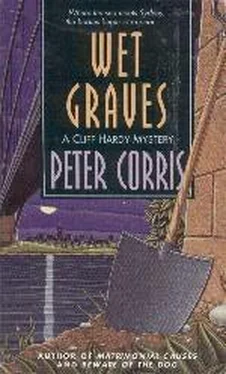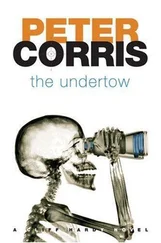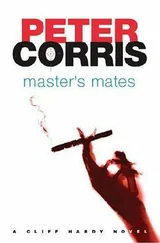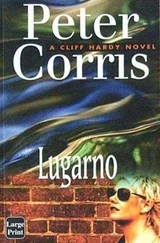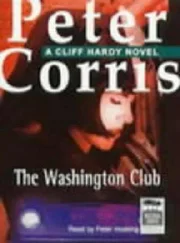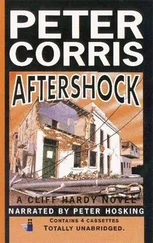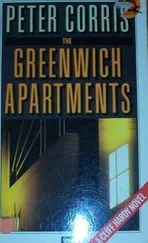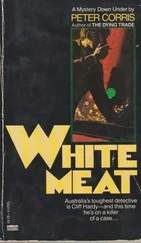Peter Corris - Wet Graves
Здесь есть возможность читать онлайн «Peter Corris - Wet Graves» весь текст электронной книги совершенно бесплатно (целиком полную версию без сокращений). В некоторых случаях можно слушать аудио, скачать через торрент в формате fb2 и присутствует краткое содержание. Жанр: Криминальный детектив, на английском языке. Описание произведения, (предисловие) а так же отзывы посетителей доступны на портале библиотеки ЛибКат.
- Название:Wet Graves
- Автор:
- Жанр:
- Год:неизвестен
- ISBN:нет данных
- Рейтинг книги:5 / 5. Голосов: 1
-
Избранное:Добавить в избранное
- Отзывы:
-
Ваша оценка:
- 100
- 1
- 2
- 3
- 4
- 5
Wet Graves: краткое содержание, описание и аннотация
Предлагаем к чтению аннотацию, описание, краткое содержание или предисловие (зависит от того, что написал сам автор книги «Wet Graves»). Если вы не нашли необходимую информацию о книге — напишите в комментариях, мы постараемся отыскать её.
Wet Graves — читать онлайн бесплатно полную книгу (весь текст) целиком
Ниже представлен текст книги, разбитый по страницам. Система сохранения места последней прочитанной страницы, позволяет с удобством читать онлайн бесплатно книгу «Wet Graves», без необходимости каждый раз заново искать на чём Вы остановились. Поставьте закладку, и сможете в любой момент перейти на страницу, на которой закончили чтение.
Интервал:
Закладка:
“An accountant. He was wrong. I knew how to save the business. Now I can do it.”
I really wasn’t interested. All I wanted to do was ask about the photograph, but I’d got myself into an odd situation. Usually, quickly assumed disguises are seen through quickly and you’re lucky if you get your couple of questions across. Glover seemed to want to believe I was a cop and to talk, but he’d wake up sooner or later. “The engineering firm, I see. Would that account for the photograph? An engineering marvel, the bridge.”
He glanced up at the photograph and a look of contempt came over his face. “So everyone seems to think. I’ve heard nothing but ‘Grandpa built the bridge’ since I was knee high. I never go over the bloody thing myself unless I have to. I hope it falls down. Probably will one day.”
“Your grandfather built the bridge?” I couldn’t keep the surprise and inquisitiveness out of my voice.
“He was one of the engineers, yes. I…” He drew on his cigarette and used the action to give himself time to think. Also, probably, to take a good look at me: leather jacket, no tie, broken nose and hair that needed cutting. “Could I see your ID again?”
“Just a few more questions, sir, and I’ll be on my way. Your father went missing when?”
“A couple of weeks ago. I want to see the ID.”
I reached into my pocket. “What’s the name of the firm?”
“You’re not a policeman.”
“I never said I was. You assumed it.”
“You said Sergeant Meredith…”
“I lied. I don’t want to make trouble for you, Mr Glover. You can take over the firm and build Meccano sets for all I care. I just want some information.”
“I’ve nothing to say.”
“How would your mother react if I got her across here and she found you with the champers open?”
“How could you do that?”
I got up, standing as tall as I could, and went across the room to the telephone. “I got the number of the Jag. Two calls and I’ve got the phone number of the silver-haired gent it’s registered to. One more call and I’m onto your Mum.”
“Who are you?”
“I told you at the door. You let me in, remember? Come on, Mr Glover. Be smart. A couple of questions and I’m gone and you can open another bottle and get a couple of girls in. What’s the name of the firm?”
“That’s one question. Glover and Barclay.”
“Who’s Barclay?”
“Two. He was a partner. Son of the original Barclay, like my father was son of the original Glover.”
“Why do you say ‘was’?”
“That’s three questions.”
I picked up the phone.
“Okay, okay. He’s dead. He was killed a few years ago by a hit-and-run driver.”
“Where?”
“On an approach to the bridge. It was in the papers. Bridge builder’s son killed on father’s creation, that sort of crap.”
I dropped the phone. The noise made him jump. Nervy, just as I thought. I put my notebook away and walked out of the room and down the passage. I heard the bottle clink against the rim of the glass just before the door closed behind me. I’d spoiled his day but I can’t say I was sorry. I flattened the carpet and let the door lock, then I pressed the buzzer for Flat 6. Nothing happened and I pressed it again. When Glover’s shaky voice came over the intercom I said nothing and walked away. The more distracted Mr Glover was, the less likely he was to remember a name and a face. Impersonating a police officer was a charge I didn’t want to have to think about.
I drove down to Bondi to eat fish and chips on the grass and look out over the water. That was the plan but the cold wind drove me to eat the food in the car and to look at the water through the windshield. Modern life… we see more of the world on film than with our eyes, and more and more of our experience is coming at second hand, through experts, commentators and communicators. I think it must have been a communicator on the radio who told me that. As I munched tie food I looked out at the deep blue water breaking up into whitecaps a hundred metres out and rolling in to the bleak empty beach. The water looked clean, but they tell us it isn’t. It wasn’t the kind of day to go down and find out.
But the water led me to thoughts of the harbour and the bridge, and on from there to consideration of Detective Sergeant Meredith. I didn’t recall any clause in the act that compelled the licensed private enquiry agent to co-operate with the police, but there often comes a point when that’s the right course of action. The problem is to judge when the moment is right-go too early and the cops can shut you out completely; go too late and they can do you for obstruction or worse. I judged, as I usually do, that it was too early.
I dumped the lunch leavings in a rubbish bin and drove back to Darlinghurst. Another stroll down William Street and through Hyde Park took me to the city library in Pitt Street. The library has one of those idiot-proof computer systems where you read the instructions off the screen, touch a marker beside the entry you want and find your way home. I ended up with The Sydney Harbour Bridge by Peter Spearritt and Building the Sydney Harbour Bridge: The Photography of Henry Mallard as the most useful-looking items. Both were on the shelves, which meant that my luck was running strongly this day. The photographs were well worth an hour or so-clear and sharp images, unsentimental, a tremendous record of a tremendous feat. The last photograph in the book showed the photographer himself sitting on a heap of metal high above the water. He wore a suit and hat, and you could just see the tip of his waxed moustache. Probably the engineers, Bradfield, Barclay, Glover, Madden and others looked much the same.
Spearritt’s book was a detailed, readable study of the bridge, from the germ of the idea to build one through all the politicking and chicanery that necessarily followed. He had a ton of information on the actual construction from the technical and human points of view, and chapters on the impact the bridge made on the life of the city. I wished I had time to read it all. Spearritt was no whitewash merchant. He discussed the plight of people who had lost their homes as a result of the construction, and he had a chapter on those who had actually been killed on the job. Sixteen of them, apparently mostly rivetters, but the casualty list included painters, quarrymen and others. One sentence on page 68 took my eye: ‘Safety regulations scarcely existed, and it is amazing that there were not many more deaths.’
I copied a few pages, including the photograph of the almost closed arch, which lost a lot in the reproduction but still constituted part of my evidence. I sat back in my chair in front of the empty screen. Computers are wonderful, but they can’t actually help you to think. If I entered into a database what I had: two dead engineers and one missing plus a policeman mentioning ‘bridge cases’ and supposing there was a key marked ‘Conclusions’ what would I get? My own conclusion was ‘What else have you got?’
I scrolled back through the catalogue entries in case I’d missed something and came across a pamphlet entitled Your Bridge, Our History. One of the librarians discovered it in a filing case, after a search that threatened to turn into a major stock-take. The pamphlet was just a few pages stapled together. It was published a few years back by something called the Veterans of the Bridge Society. It contained a couple of reminiscences from men who had worked on the bridge, a couple of Mallard’s photographs, a list of the men killed and seriously injured in the course of the work, and a selection of opinions from ordinary people. Some praised the bridge as an engineering marvel, others condemned it for ruining the Rocks area and Circular Quay. The secretary of the Veterans of the Bridge Society was Stan Livermore, and the pamphlet carried his address-43A Pump Street, The Rocks.
Читать дальшеИнтервал:
Закладка:
Похожие книги на «Wet Graves»
Представляем Вашему вниманию похожие книги на «Wet Graves» списком для выбора. Мы отобрали схожую по названию и смыслу литературу в надежде предоставить читателям больше вариантов отыскать новые, интересные, ещё непрочитанные произведения.
Обсуждение, отзывы о книге «Wet Graves» и просто собственные мнения читателей. Оставьте ваши комментарии, напишите, что Вы думаете о произведении, его смысле или главных героях. Укажите что конкретно понравилось, а что нет, и почему Вы так считаете.
